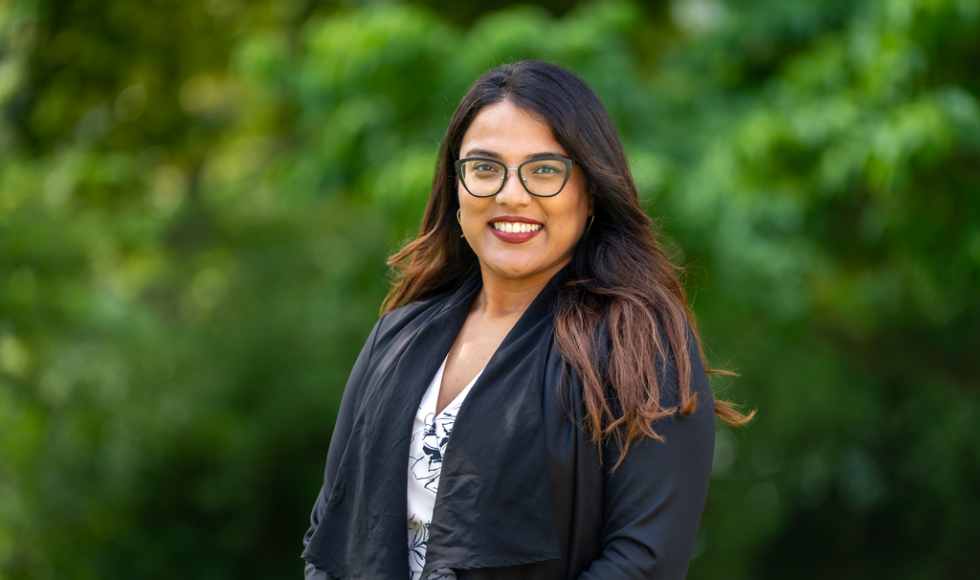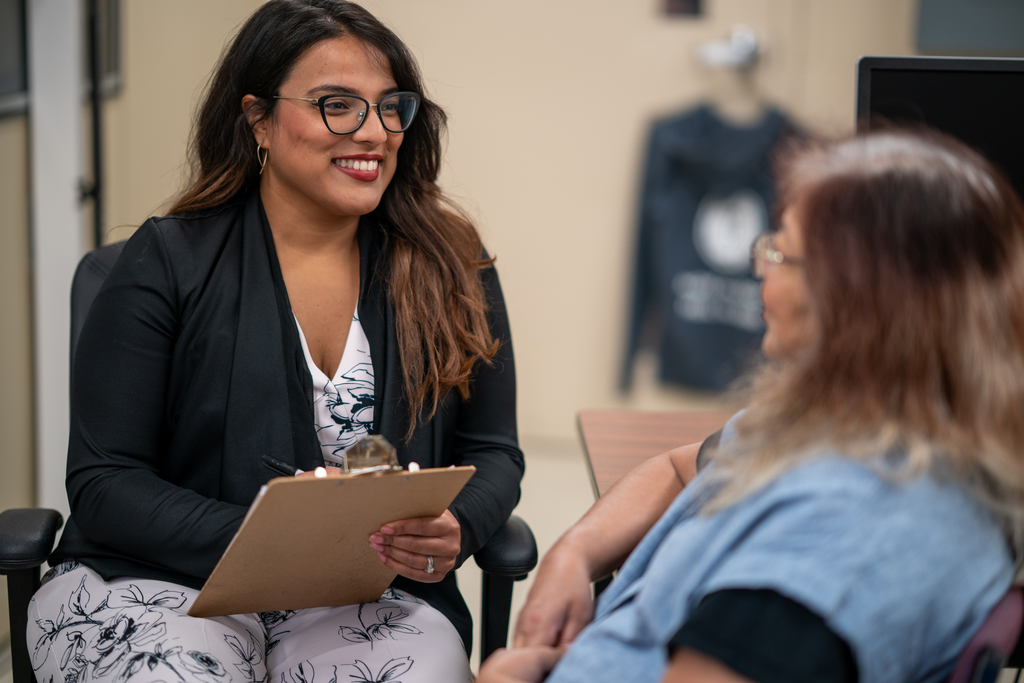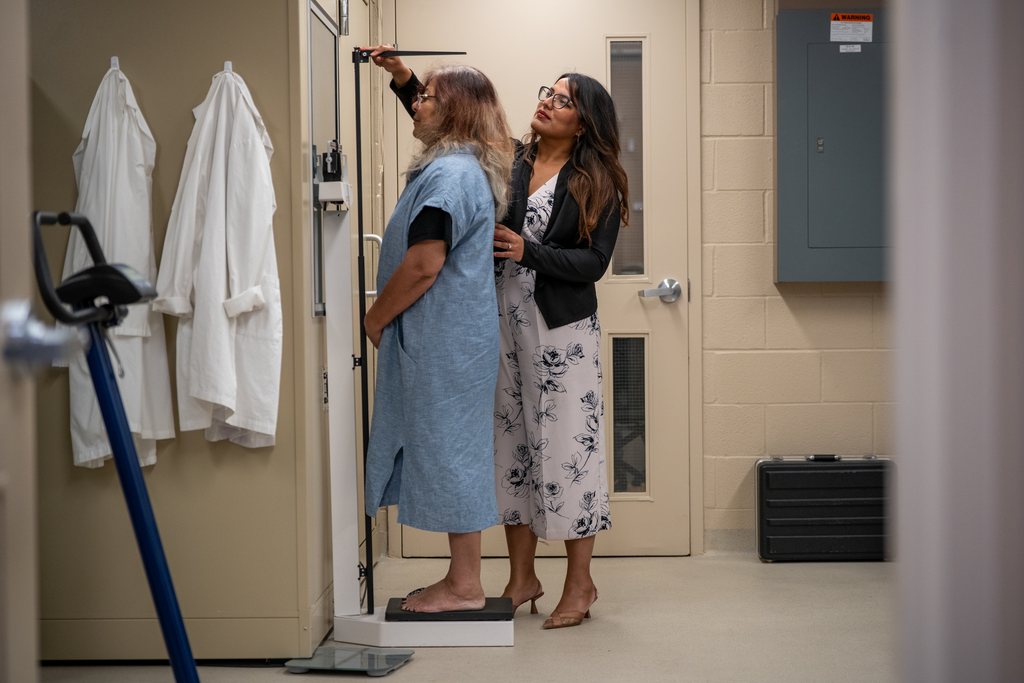‘Autism doesn’t go away with age’: Researcher works to support older adults

Joseph earned her undergraduate degree in Life Sciences at McMaster and worked in health-related research for 10 years. She returned in 2024 to start her master’s, and will begin her PhD in kinesiology this fall. (Photo by Georgia Kirkos)
BY Caelan Beard
July 4, 2025
Autism research has historically focused on children, leaving a major gap in understanding older adults, PhD student Karen Joseph says. She’s working to close that gap, focusing her research on understanding the physical and mental health of autistic adults as they age.
Though autism was first diagnosed in the 1940s, it wasn’t until the 1990s that growing awareness and reduced stigma led to more widespread diagnoses.
Now, that first wave of identified individuals is entering adulthood or older age — but a small fraction of autism research has followed them there.
“Most research and funding has been focused on children and early intervention,” Joseph said. “There’s still a lack of awareness that autism doesn’t go away with age.”
Emerging studies show that older autistic adults experience greater health disparities, chronic illness, social isolation and economic vulnerability.
Joseph, who earned her undergraduate degree in Life Sciences at McMaster and worked in health-related research for 10 years, returned in 2024 to start her master’s degree.
This fall, she’ll begin her PhD in kinesiology in the Neurofit Lab under the supervision of Jennifer Heisz.
Joseph’s work focuses on understanding how aging intersects with autism — with the goal of informing policy and programs that better support neurodivergent adults.

To do this, she’s using both traditional statistics and qualitative interviews to take a more holistic approach. She’s currently working on the longitudinal Aging and Autism Study at Holland Bloorview Hospital, where she was previously a research coordinator.
She’s also been active in raising awareness, speaking at events such as McMaster’s kinesiology graduate conference and the Science Graduate Symposium.
Sharing this research ensures that evidence is accessible and helps inform real-world support, services and policy for aging autistic adults, Joseph said.
“I know how important it is to collect data that considers the whole person,” she said. That means looking at nutrition, sleep, physical activity, mental health, cognition and quality of life — and understanding how these areas influence one another as people age.

Her PhD research is organized into three phases:
- Past: Reviewing existing literature and conducting interviews with older autistic adults to learn about their lived experiences.
- Present: Analyzing current data to understand participants’ health and lifestyle profiles.
- Future: Applying machine learning to predict long-term health trends and patterns.
The ultimate goal is to understand aging trajectories and design inclusive lifespan-informed supports that meet evolving needs, she said.
“We need to listen to people’s unique needs and create systems specifically tailored to them.”
Joseph is particularly interested in understanding the gaps in aging-related services that aren’t designed with neurodivergent individuals in mind.
“What does this population truly need?” Joseph said. “It’s about understanding their unique health challenges and the supports they will need as they grow older.”
With better insights from her research, Joseph believes we can develop more responsive and personalized approaches to health care, inclusive environments and community programs.
One of her hopes is that her PhD research will lead to a policy brief with clear recommendations.
“For me, this goes beyond the research,” she said. “It’s about advocacy and community partnerships, and creating systems that truly support autistic adults, so they’re no longer left behind.”
If you are interested in being a part of the Aging and Autism research study, find more information here. Anyone aged 40 and over is welcome to take part.


